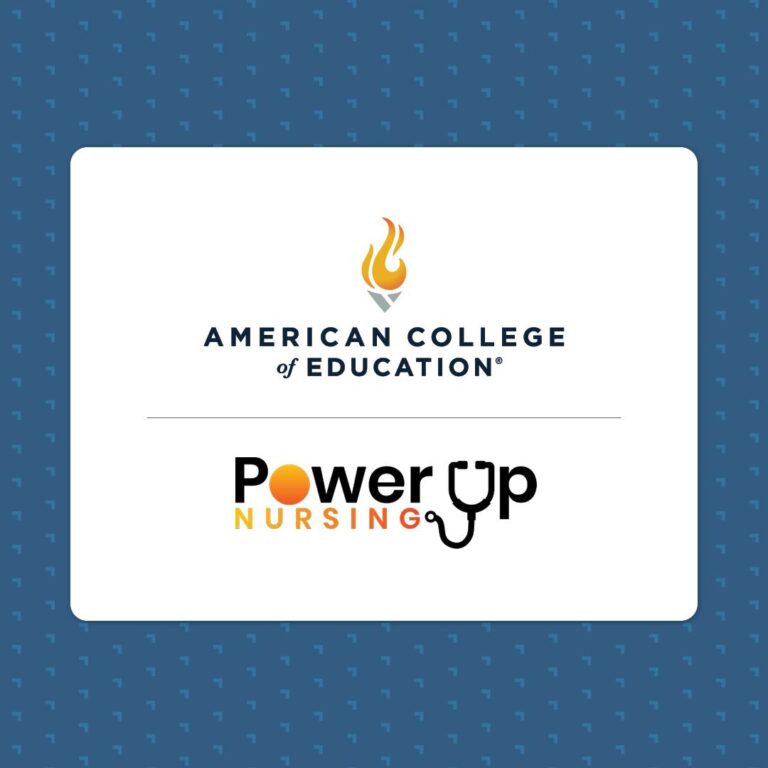Strengthening Nursing Education: A New Collaborative Initiative by American College of Education and Dallas College
The American College of Education and Dallas College have recently broadened their collaborative efforts by introducing an innovative nursing education pathway. This initiative is designed to meet the escalating need for skilled nursing professionals by offering students a more accessible and efficient route into healthcare careers. By combining flexible learning formats with practical clinical training, the program aims to equip future nurses with the comprehensive skills required in today’s dynamic medical environments.
Highlights of the new nursing pathway include:
- Curricula tailored to align with current national nursing accreditation standards
- Instruction from experienced faculty members across both institutions
- Streamlined credit transfer mechanisms to facilitate faster degree completion
- Robust student support services, including academic tutoring and career counseling
| Program Feature | Details |
|---|---|
| Instruction Format | Hybrid model combining online coursework with in-person laboratory sessions |
| Program Length | Typically 2 to 3 years |
| Degree Awarded | Associate Degree in Nursing (ADN) |
| Further Education Pathway | Seamless transition to Bachelor of Science in Nursing (BSN) programs |
Addressing Nursing Shortages with Expanded Educational Pathways
In response to the nationwide shortage of qualified nursing staff, the partnership between the American College of Education and Dallas College has intensified its focus on creating a comprehensive nursing education pipeline. This expanded program supports a wide range of learners—from newcomers to healthcare to experienced practitioners aiming to elevate their credentials. By offering a clear, accelerated path from foundational studies to advanced nursing qualifications, the initiative seeks to supply hospitals and community health centers with a steady influx of well-prepared nursing professionals.
Key components of the expanded nursing pathway include:
- Flexible scheduling options, including fully online and hybrid courses, to accommodate working students
- Accelerated credit articulation agreements to shorten time-to-degree
- Enhanced clinical placement partnerships with top-tier healthcare providers
- Comprehensive mentorship programs and career development services
| Program Element | Advantage |
|---|---|
| Credit Articulation | Minimizes duration to graduation |
| Simulation-Based Training | Develops clinical skills in a controlled, risk-free setting |
| Career Support | Offers tailored guidance and job placement assistance |
Flexible and Comprehensive Curriculum Structure for Nursing Students
The newly launched nursing pathway features a versatile curriculum designed to adapt to the diverse needs of students. Offering a mix of online, hybrid, and face-to-face classes, the program accommodates both full-time learners and professionals balancing work commitments. Core coursework covers fundamental nursing principles, while elective modules allow students to specialize in areas such as neonatal care, chronic disease management, or psychiatric nursing.
For example, the curriculum integrates practical skill-building through clinical rotations at local hospitals and community clinics, ensuring students gain hands-on experience. Below is a breakdown of the program’s structure emphasizing its adaptability and depth:
| Course Component | Mode of Delivery | Duration |
|---|---|---|
| Introduction to Nursing Practice | Online and On-Campus | 8 Weeks |
| Clinical Internship | In-Person | 12 Weeks |
| Specialization Electives | Hybrid | 6 Weeks Each |
| Final Capstone Experience | Online | 4 Weeks |
Throughout their studies, students receive personalized academic advising and career planning support. By blending theoretical instruction with real-world clinical exposure, this program prepares graduates to excel in a variety of healthcare settings, from urban hospitals to rural clinics.
Maximizing the Impact of the Nursing Education Partnership: Guidance for Students and Employers
To fully benefit from this enhanced nursing education pathway, students are encouraged to maintain active communication with academic advisors and clinical supervisors. Engaging with resources such as tutoring services, mental health support, and career development workshops can significantly boost academic performance and professional readiness. Participation in healthcare networking events and student organizations also helps build valuable industry connections early on.
Healthcare organizations can amplify the partnership’s effectiveness by implementing structured mentorship programs and offering clinical placements that align with the evolving curriculum. Ongoing collaboration between educators and clinical staff ensures that training remains relevant and that students transition smoothly into professional roles. Additionally, investing in continuous education for existing nursing staff fosters a culture of lifelong learning and supports workforce retention.
Conclusion: A Transformative Step Forward in Nursing Education
The expanded collaboration between the American College of Education and Dallas College represents a pivotal advancement in nursing education, providing a clear and accessible pathway for students to enter the healthcare workforce. With the nursing shortage projected to grow—according to the U.S. Bureau of Labor Statistics, registered nurse employment is expected to increase by 9% from 2022 to 2032—this partnership offers a timely solution to meet rising demand. By prioritizing flexible learning, practical experience, and comprehensive support, this initiative is set to positively influence healthcare delivery not only in Detroit but across the nation.







